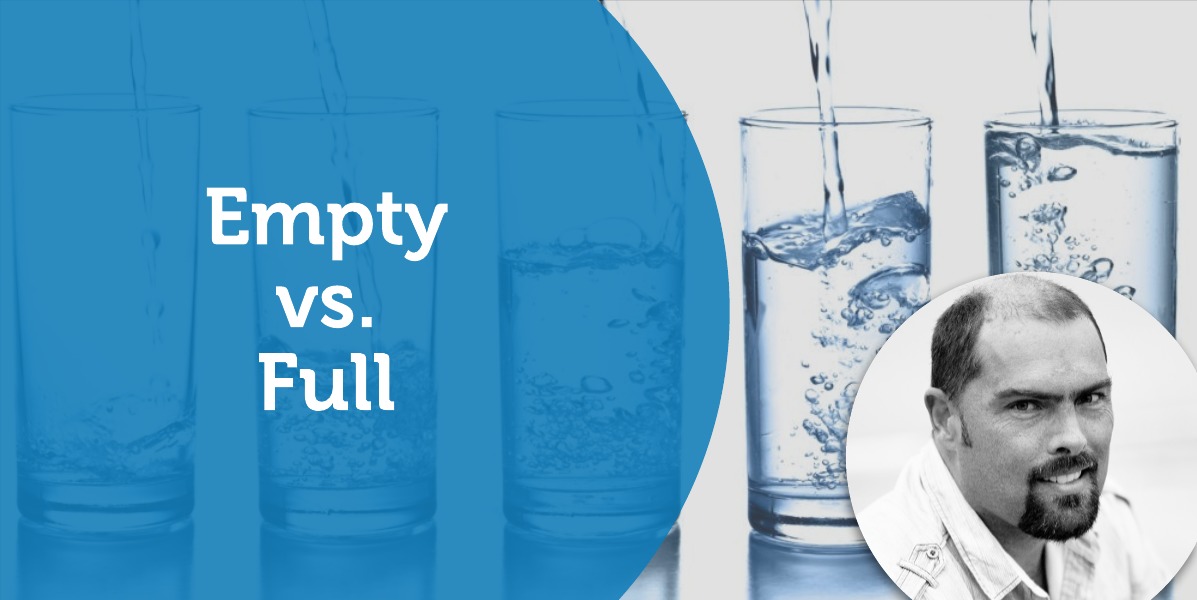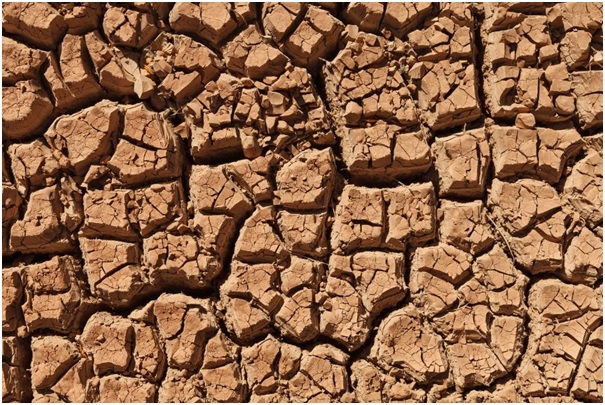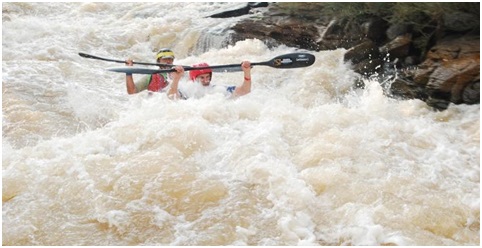 A Coaching Power Tool Created by Leslie Van Zyl-Smit
A Coaching Power Tool Created by Leslie Van Zyl-Smit
(Life Coach, SOUTH AFRICA)

The usefulness of a cup is in its emptiness. ~ Chinese Proverb
Some people believe holding on and hanging in there are signs of great strength. However, there are times when it takes much more strength to know when to let go and then do it. ~ Ann Landers
Last night I lost the world, and gained the universe. ~ C. JoyBell C
1 Dry Streambed
From time to time along our journey through life, we encounter situations where our streams run dry and we find ourselves sitting on the streambed peering at dry, cracked mud. It is in those situations – when life feels like a wilderness – that the feeling of being empty, vulnerable, and lost without direction overwhelms you.
During these times, you start wondering where to from here? Maybe you’ve been let down by your best friend or your health is failing? Maybe you’ve lost your job or, worst of all, you’ve lost a loved one? The scenarios are endless and I’m sure it won’t take much effort to come up with a list of your own dry streambeds from the past.
Those streambeds are the ones vivid in our memories, charged with emotion and longing. But this is also where we find expectancy. Life has a strange way of revealing meaning to us when we deal with emptiness as a result of loss, suffering, and discomfort.
In the ancient Hebrew language, the root of the word “midbar” has two meanings. The first being “wilderness” and the second “mouth, or speech”. Being in the wilderness – being empty – is a good place to listen…
Don’t fret over cracked mud. Be encouraged to seek and embrace emptiness, because when you are empty you can become part of a process to be filled again. He who goes to the market takes an empty basket. You don’t catch rain with a full bucket.
“The future depends on what you do in the present”, as Gandhi once said. However, first, you need to be empty.
An empty jar is a useful jar…
2 Letting Go
Another thought that comes to mind while musing about emptiness along dry streambeds is that of letting go. Humans are gatherers. We tend to collect and hold on to possessions and memories. We savor memories, that favorite jersey in the cupboard, or the watch your dad gave you on your 13th birthday.
However, some of the things that you cling to in life will hold you back. These things can be like a ball and chain and will prevent you from moving forward, from reaching out to freedom. These are the things that we need to let go of before we can embark on a journey to new horizons.
How many choices have you made today? Life is all about choices, and we are faced with way more decisions daily than we realize. For every “Yes”, there is a “No” to something else. Sometimes you have to let go of and say no to receive something else.
The most difficult part of the journey is the first step. In letting go, saying “No” is often the first step.
An empty hand is a free hand…
3 Empty vs Full Metaphors
Throughout my own journey, I have come across a few metaphors that have aided me in considering what needs to be emptied or let go of. Here follows some of them.
3.1 Catching a Racoon
If you’ve read the classic 1961 children’s novel “Where the Red Fern Grows” by Wilson Rawls(Rawls, 1996), you will know all about raccoon hunting in the Ozark Mountains. After many failed attempts by Billy Coleman to hunt raccoons with his beloved Redbone Coonhounds, he one day learns about the “Monkey Trap”.
First of all, you make a hole in a cage just big enough for the animal’s hand to fit through, but small enough so that it cannot remove its hand when made into a fist. Next, you place an object of interest, like a handful of nuts, into the hole and wait for the animal to put its hand through the hole to clutch its prize. Holding on to the object, or nuts, it turns its hand into a fist and the animal is unable to return its hand through the hole.
This is where the animal should say to itself, “Hey, I’m stuck, drop the nuts.” Though, it won’t. It wants that prize. An inquisitive animal won’t want to surrender and will start pulling and pulling on the trapped hand until the hunter snatches it from behind. Many inquisitive animals such as raccoons, baboons, monkeys, mongoose, etc. are caught daily in this manner. If they just surrendered what they were holding on to, they could have been free. Though, because they refused to surrender, they lost their ultimate freedom. Only an empty hand can be returned through the hole.
We all fall into the monkey trap, by clinging to ambitions, comforts, past hurts, beliefs, and fears that we simply cannot let go of. Maybe it’s time to take a good look at the nuts in your hand? Maybe it’s time to let go…
3.2 Burn the Ships
Hernán Cortés(Wikipedia, 2020)was part of the Spanish explorers who began the first phase of the Spanish colonization of the Americas. He is famous for orchestrating the fall of the Aztec Empire that brought large portions of what is now mainland Mexico, under the rule of Spain in the early 16th century. There is a story told that when Cortés set foot on shore he was concerned about the loyalty of his men, as some of them wanted to return to Cuba. To prevent them from considering mutiny, he gave orders to burn their ships leaving him and his crew no option but to conquer or die.
It is human to sometimes along the journey want to return to the familiar comforts of the past. Having that escape route that is all too familiar is a comforting thought. However, sometimes we need to pass the point of no return as we embark on a future of freedom. Some journeys require an all-or-nothing attitude and for you to say goodbye to the past for good.
3.3 UMKO
 I am a keen river kayak- and surf-ski paddler, and few things in life excite me more than paddling down a raging river. In 2016, I teamed up with a good friend of mine, Tony, and we entered the UMKO Canoe Marathon, a 65-km, two-day staged kayak race on the Umkomaas river in South Africa. This canoeing contest is raced on the biggest white water that conventional International Canoeing Federation legal racing canoes, compete in the world.
I am a keen river kayak- and surf-ski paddler, and few things in life excite me more than paddling down a raging river. In 2016, I teamed up with a good friend of mine, Tony, and we entered the UMKO Canoe Marathon, a 65-km, two-day staged kayak race on the Umkomaas river in South Africa. This canoeing contest is raced on the biggest white water that conventional International Canoeing Federation legal racing canoes, compete in the world.
Tony and I had a tough time out there, and on the second day of the race, our badly damaged K2 kayak was taking on a lot of water. This predicament forced us to stop from time to time to empty the boat in an attempt to keep us afloat. I remember thinking to myself in the approaches of one particular white-water rapid called “House Rock Rapid”, that we should have emptied before attempting the rapid. However, it was too late as there was no safe place to stop on the riverbank.
Halfway into the rapid, as our boat started to pick up speed and we battled against the might of the Umkomaas, I felt a gush of water rushing from behind to the front of our boat, flooding the nose. All of a sudden, the weight of water in the front of the boat caused us to be imbalanced and we started to nosedive through the raging waters. I could no longer control the steering of our boat and, within seconds, the two of us capsized and found ourselves along with our flotsam and jetsam swimming down “House Rock Rapid”.
It felt like an eternity as we were left to the mercies of the river gods. Fortunately, we managed to regather ourselves and our kit in a pool at the bottom of the rapid without too much damage to man and machine.
An empty boat is light and buoyant boat; an empty boat is also a maneuverable boat. If we emptied our kayak before “House Rock Rapid”, it would have been game on, but with the extra weight of the water inside our kayak, we had no chance.
If there is water in your boat, stop and empty it.
4 Reflections
4.1 Let go, empty the cup
I have a past, but I don’t live there anymore.~ Anon
Over the years, while sitting on some dry streambed peering at the cracked mud, I have been confronted with the nuts in my hand and stuff filling my jar. Here are some of the headings I can list them under.
4.1.1 Make a list of the things you need to let go of

4.2 Where to from here?
This is a good place to give a word warning because it is important to give careful consideration to what you put back into the empty jar. There is no use in putting back the same dirty water or some other dirty water. Letting go means letting go. There’s no use in you clench your fist around another nut and remain trapped.
The secret of change is to focus all of your energy, not on fighting the old, but on building the new. ~ Socrates
4.2.1 How is your ultimate future different from your past?

4.2.2 What would you do, where would you be if you were absolutely free to choose?

4.2.3 Imagine arriving at your promised land, the ultimate future or desired state…


4.3 What are you doing NOW to embark on in the future?
The first step is the hardest. You’ve got to go and do something intentionally to start the journey.
The future depends on what we do in the present. ~ Mahatma Gandhi
4.3.1 What is the first step you have to take?

4.3.2 What are you going to do on purpose to start the journey?

4.3.3 List some milestones/goals along the way:

4.3.4 What help will you need along the way?

Pleasure disappoints, possibility never.~ SørenKierkegraad
References
Rawls, W. (1996). Rawls, W.W. (1996). Where the red fern grows. Yearling, Broadway, New York. Broadway, New York: Yearling.
Wikipedia. (2020, 09 22). Hernan Cortes. Retrieved from Wikipedia – Hernan Cortes